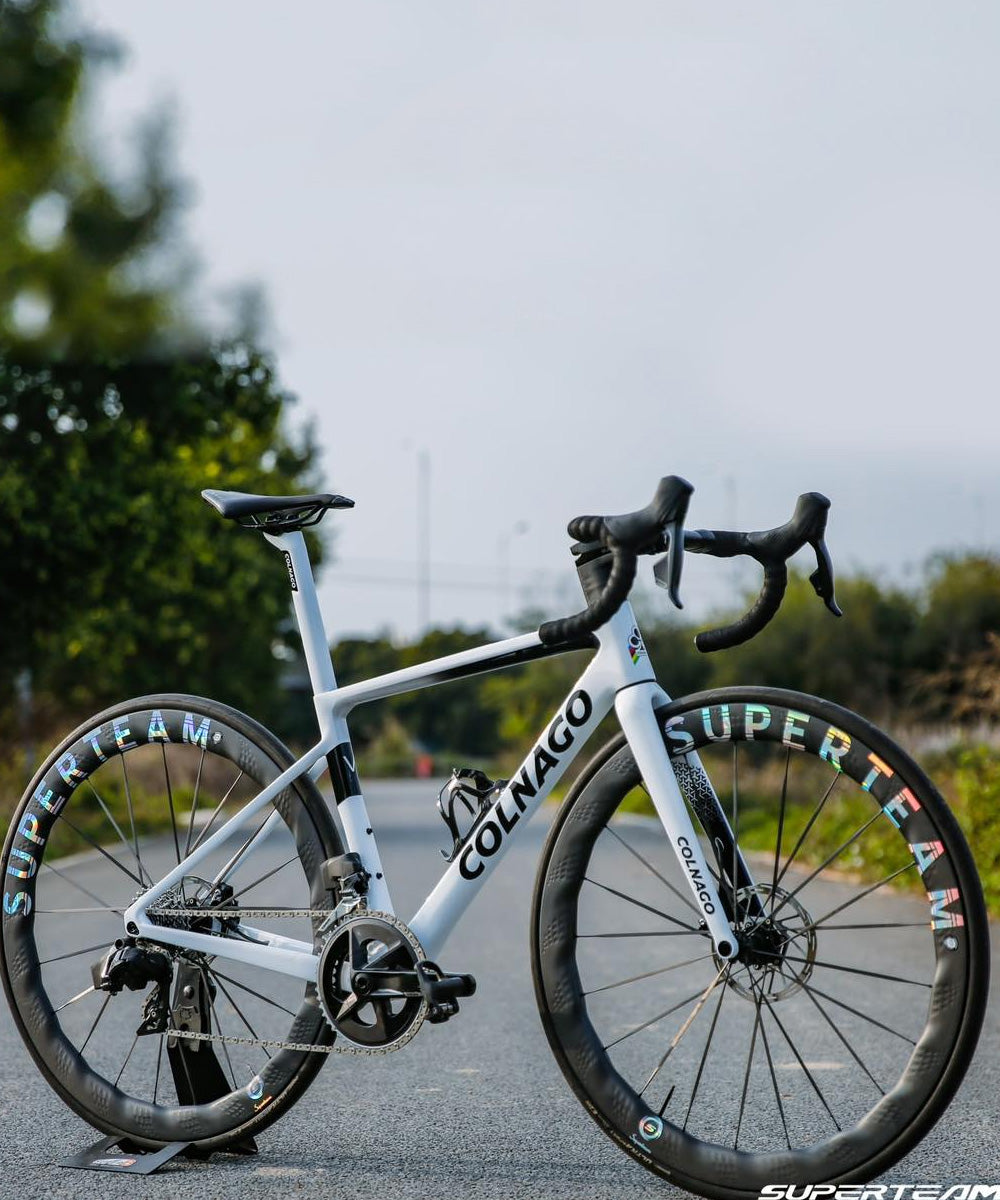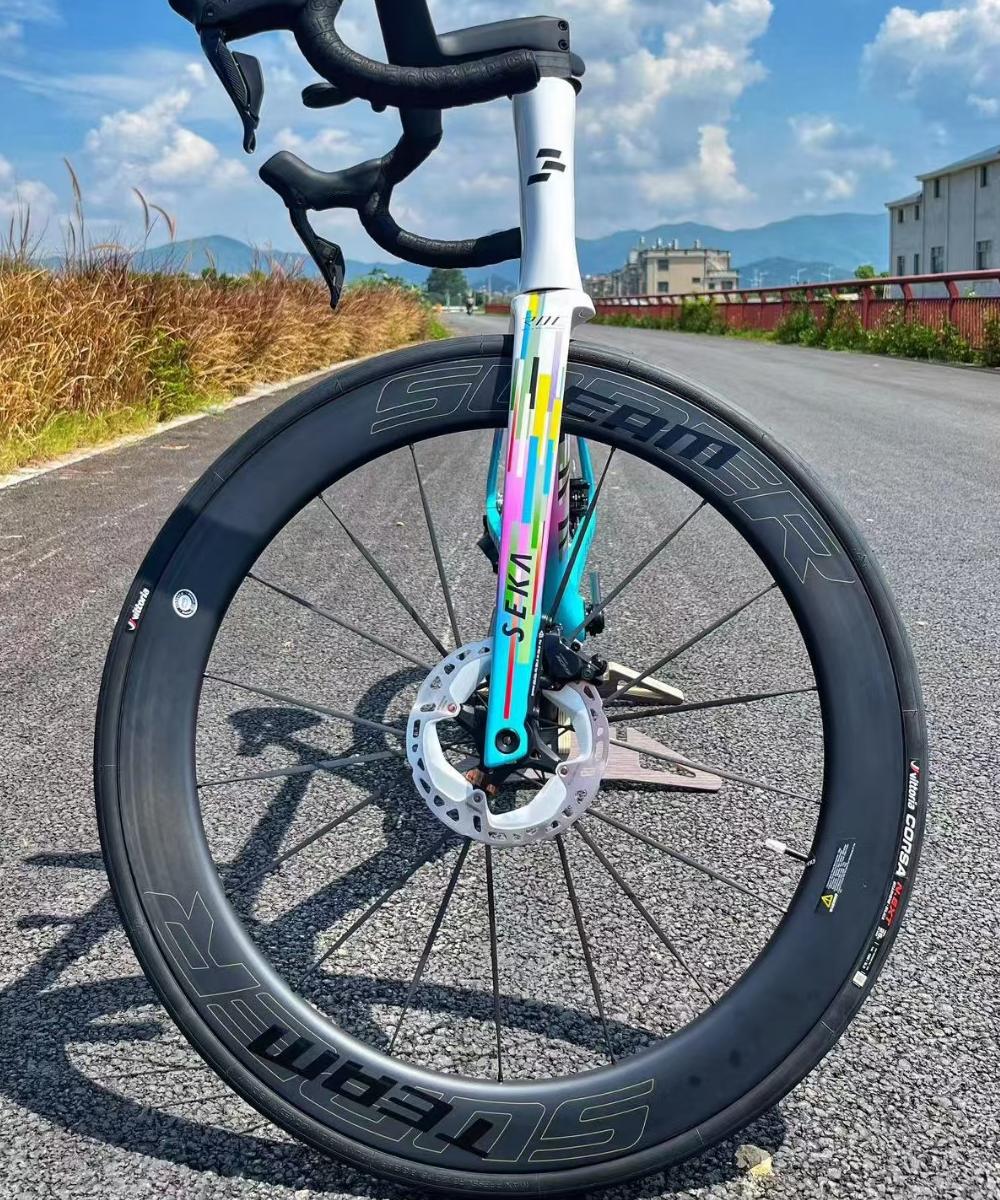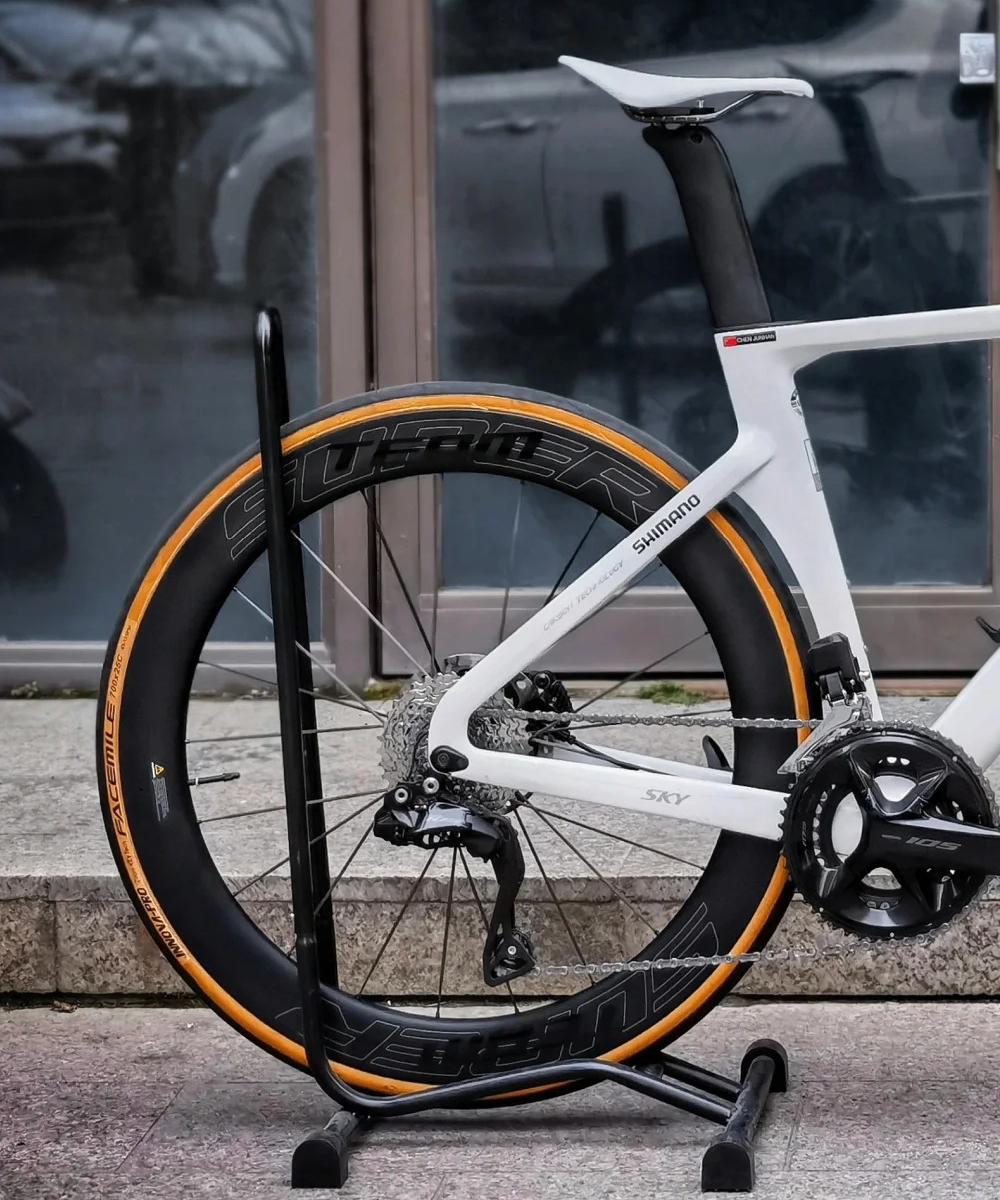The Influence of Spoke Material on Ride Comfort and Weight
When evaluating or upgrading a wheelset, most riders focus on rim depth, hub engagement, or overall weight—but often overlook one key element: the spokes. While small in appearance, spoke material plays a crucial role in ride comfort, wheel weight, and performance characteristics.
In this article, we explore the most common spoke materials—stainless steel, aluminum, carbon fiber, and titanium—and how each affects your cycling experience.
1. Stainless Steel Spokes: The Reliable Workhorse
Weight: Moderate
Comfort: Balanced
Durability: High
Cost: Affordable
Stainless steel is the industry standard and for good reason. It offers a good balance of strength, elasticity, and cost-effectiveness.
Ride Comfort: Stainless steel has a moderate amount of flex, which absorbs road vibrations without compromising stiffness too much.
Weight: Heavier than carbon or titanium, but lighter than aluminum options.
Best For: Road, gravel, and touring bikes where durability and ride feel matter more than weight savings.
2. Aluminum Spokes: Light but Brittle
Weight: Low
Comfort: Harsh
Durability: Low to medium
Cost: Mid-range
Aluminum spokes are used less commonly, but when they are, it’s often in aero-optimized wheelsets.
Ride Comfort: Aluminum is more rigid, which can create a harsher ride—especially on rough surfaces.
Weight: Lighter than steel, but only marginally.
Durability Warning: Aluminum is more prone to fatigue and snapping under high tension or long-term use.
Best For: Racing-specific wheelsets where weight matters more than long-term durability.
3. Carbon Fiber Spokes: Ultra-Light and Ultra-Stiff
Weight: Very Low
Comfort: Variable (depends on layup)
Durability: High if designed well
Cost: High
Carbon fiber spokes are increasingly used in high-end performance wheelsets. Brands like Lightweight, Mavic, and Superteam now offer full carbon spoke wheels.
Ride Comfort: Tunable. Some carbon spokes are engineered for vertical compliance, offering shock absorption. Others focus on lateral stiffness for power transfer.
Weight: Among the lightest options—sometimes saving up to 100g+ over traditional spoke systems.
Best For: Racers, climbers, and riders looking for the lightest, stiffest setup.
Consideration: More expensive and often non-user-serviceable.
4. Titanium Spokes: Lightweight with Flex
Weight: Light
Comfort: High
Durability: Medium to high
Cost: High
Titanium offers a rare combination: it’s light, rustproof, and flexible—making it a favorite among custom and endurance bike builders.
Ride Comfort: Excellent. The inherent flex of titanium absorbs vibrations and softens road feel.
Weight: Lighter than steel, heavier than carbon.
Best For: Endurance riders and those prioritizing comfort without sacrificing too much weight.
Downside: Expensive and slightly less stiff, which might affect power transfer under sprinting or heavy loads.
5. How Spoke Material Impacts Wheel Dynamics
Weight Distribution: Spoke material contributes to rotational mass. Lighter spokes reduce the energy required to accelerate or climb.
Vibration Dampening: More elastic materials (like titanium or tuned carbon) help reduce fatigue by softening road buzz.
Stiffness & Power Transfer: Stiffer spokes (carbon or aluminum) offer better lateral rigidity, aiding in sprinting and cornering.
6. Spoke Count & Lacing Matters Too
Material isn’t the only factor. The number of spokes and how they’re laced (radial, two-cross, etc.) also influence comfort and weight. For example:
A low spoke count with carbon spokes might be ultra-light but less forgiving.
A higher spoke count with steel can absorb shocks better and last longer.
Final Thoughts
Your spoke material choice should align with your riding style:
|
Rider Type |
Recommended Spoke Material |
|
Beginner / All-Round |
Stainless Steel |
|
Racer / Climber |
Carbon Fiber |
|
Endurance / Comfort |
Titanium |
|
Budget Conscious |
Stainless or Aluminum |
In the world of wheelsets, it’s easy to be distracted by rim depth or hub specs. But don’t forget—the humble spoke plays a significant role in how your bike feels, climbs, and handles. Choose wisely, and your wheels will not only roll faster—they’ll ride smoother too.




